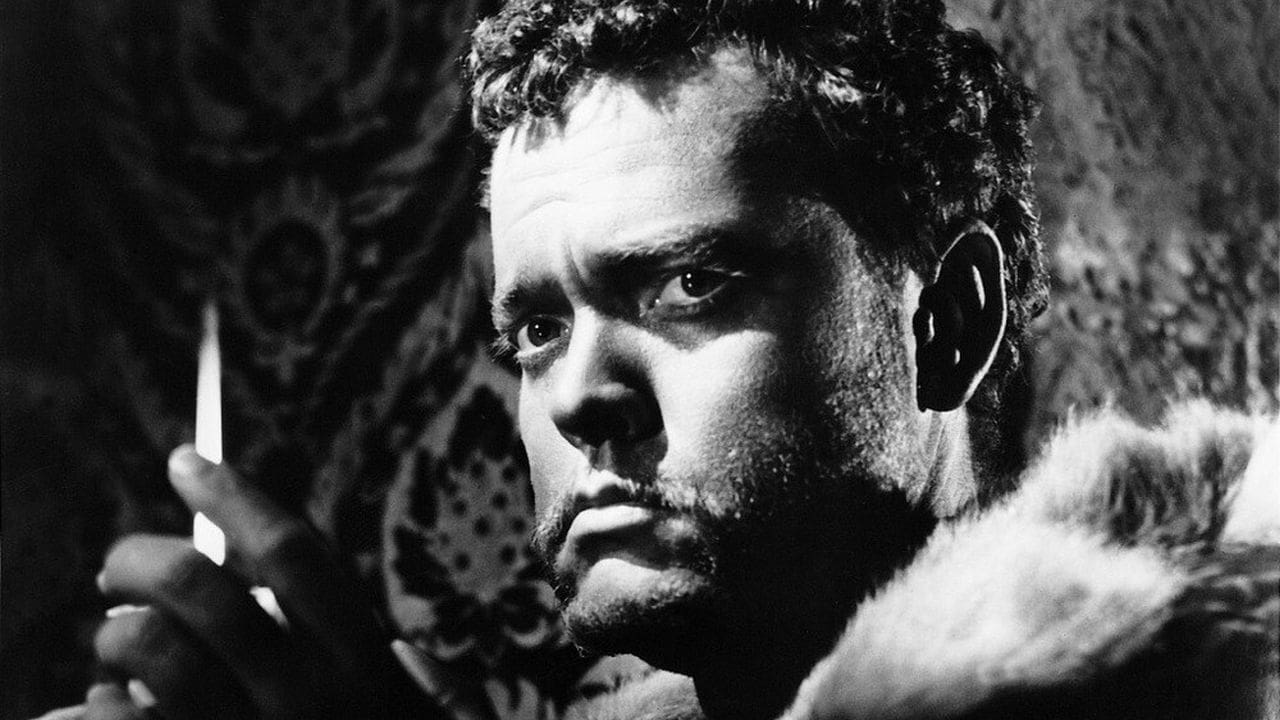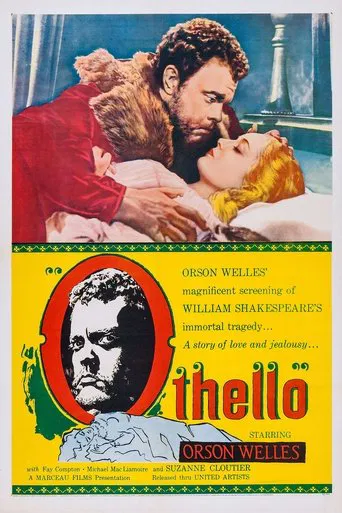

the mark of Oscar Welles. this is the basic virtue of film. the second - Oscar Welles himself as inspired Othello. and Emilia by Fay Compton. Micheal MacLiammoir seems give a mix of Richard III and Iago. and Desdemona...she remains a shadow with ambiguous traits. another virtue - the cinematography. and a new, convincing, lecture of Shakespeare. maybe, not the most inspired adaptation. but seductive, precise, impressive for details and for the way to use the text with force and grace.
... View MoreThe re-release in the early 1990s of Orson Welles' cut-and-paste Shakespeare tragedy was greeted by near unanimous critical acclaim, but all the belated comparisons to 'Citizen Kane' couldn't hide the desperate circumstances under which the film was made. Welles himself gave an impressive, suitably moody performance in the title role, but all his efforts were undone by too many budget restrictions (consecutive scenes were sometimes shot years apart), leaving only a flimsy shadow of what could have been another masterpiece. Visually, the film highlights all the trademark eccentricities of its director, including some ostentatious, imitation Gregg Toland cinematography. But the shoddy editing and poorly recorded sound track diminish the impact and beauty of Shakespeare's language, and the occasional flash of brilliance isn't enough to salvage yet another compelling failure from a wayward genius.
... View MoreWhat an incredible movie! There have been many brilliant directors -- Coppola, Huston, Pekinpah, Spielberg, to mention but a few -- but there is only one Orson Welles. In Othello, the Great Master towers above all others in an impressive tour-de-force. This sparkling production combines the greatest genius of literature and the greatest genius of film. The result... Shakespearean film noir. Amazing cinematography and editing that will take your breath away. One brilliantly composed shot after another. Tremendous acting and direction. Atmospheric drama so visceral and intense it creates the "Wow!" effect. Welles' artistry is pure genius and reminiscent of Michelangelo. A truly great masterpiece.
... View MoreIf you would seek some kind of perspective on the Motion Picture industry you could do worse than study the career of old Awesome; a string of masterpieces - Kane, Chimes At Midnight, Touch Of Evil - and nearasdammit masterpieces - Ambersons, Mr. Arkadin, Journey Into Fear -which he either wrote, directed and appeared in, sometimes all three, liberally laced with the trash in which he deigned to act - The Black Fox, Ferry To Hong Kong etc - in order to finance projects like this one, which belongs right up there with the masterpieces. I note that much verbiage has been spilled under this title on IMDb debating and disputing the pros and cons of the 'restored' version and whether or not it was indeed ever 'lost'. This is surely academic at best; what matters is that we now HAVE a close approximation of what Awesome intended and frankly if it were any closer I couldn't stand it. The pre-credit sequence alone is worthy of one of the great Silent masters, Gance, Dreyer and like that and the first shot proper is magisterial. Time and time again Welles uses the landscape to compose startling images only to contrast this with key speeches like 'farewell the tranquil mind ...' which he shoots more or less straight and who else but Awesome could make such a virtue out of necessity as in the scene slated for conventional filming until the costumes failed to turn up; his solution, stage it in a bath-house with the actors wearing towels which were themselves borrowed from their hotel. It was Welles himself who made the finest Shakespearean film of all time in Chimes At Midnight and with Othello he runs it a close second. Unmissable.
... View More